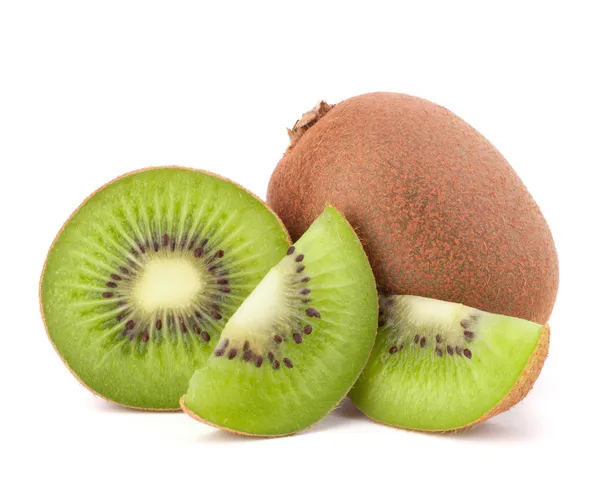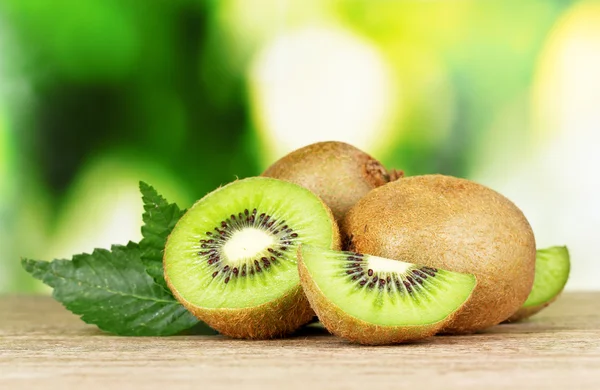Numerous amazing thing happens to your body when you eat kiwi fruits regularly. Kiwi fruits are a small, oval-shaped fruit that is native to China. They are a good source of vitamins C, E, and K, as well as potassium, folate, and fiber. Kiwi fruits have a sweet, slightly tart flavor and a soft, fuzzy skin. They can be eaten fresh, cooked, or juiced.
Kiwi fruits have been shown to offer a variety of health benefits. They are a good source of antioxidants, which can help protect the body from damage caused by free radicals. Kiwi fruits also contain actinidin, an enzyme that can help to break down proteins, making them easier to digest.

In this article, Sound Health and Lasting Wealth will discuss the specific things that happen to your body when you eat kiwis regularly: and also provide some tips on how to incorporate kiwi fruits into your diet.
Your heart health improves:
Maintaining a healthy heart is essential for overall well-being, and kiwi fruits can be a valuable addition to a heart-healthy diet. The antioxidants[1] and fiber in kiwis help in reducing the risk of cardiovascular diseases. Additionally, the potassium content in these fruits helps in regulating blood pressure levels, thereby promoting a healthy heart.
A study[2] published found that people who ate three kiwis per day for eight weeks had lower blood pressure than those who did not eat kiwis. The study also found that kiwis can help to improve blood flow in the arteries.
Your digestive health improves:
Kiwi fruits are a good source of fiber, which is important for digestive health. Fiber helps to keep the digestive system healthy by adding bulk to stool and helping it to pass through the intestines more easily.
A study published[3] found that kiwi fruits can help to improve bowel movements and reduce constipation. The study also found that kiwis can help to reduce the risk of gastroesophageal reflux disease (GERD).
Your immunity improves:
Kiwi fruits are known for their high vitamin C content, which plays a crucial role in strengthening the immune system. Regular consumption of kiwis can help in warding off common illnesses, such as colds and flu, and reduce the severity and duration of symptoms. The antioxidants present in kiwi fruits also contribute to their immune-boosting properties.
One study[4] found that kiwi fruits can help to improve the function of immune cells. The study also found that kiwis can help to reduce the risk of getting sick.
Your skin health improves:
If you desire healthy and glowing skin, kiwi fruits can be a natural remedy. The vitamin C present in kiwis aids in the production of collagen, a protein that supports skin elasticity and reduces the appearance of wrinkles. The antioxidants in these fruits also help in protecting the skin against damage from free radicals, promoting a youthful and radiant complexion.
One study[5] found that kiwi fruits can help to improve skin elasticity. The study also found that kiwis can help to reduce wrinkles and age spots.
Your weight loss efforts may be supported:
For individuals looking to manage their weight, kiwi fruits can be a beneficial addition to their diet. Kiwis are low in calories and fat while being high in fiber, making them a satisfying snack choice. The fiber content helps in promoting feelings of fullness and reducing overall calorie intake, thereby supporting weight management goals.
A study published in the journal Appetite found that people who ate kiwis before breakfast felt fuller and ate less food at lunch than those who did not eat kiwis. The study also found that kiwis can help to reduce the risk of obesity.
Your energy levels Increase:
Feeling sluggish and tired? Regularly consuming kiwi fruits can help boost your energy levels. These fruits are an excellent source of natural sugars, such as fructose, which provide a steady release of energy throughout the day. Kiwis also contain essential vitamins and minerals that support overall energy production in the body.
Your eye health improves:
Maintaining good eye health is crucial, and kiwi fruits can contribute to this aspect. They are rich in antioxidants and carotenoids, such as lutein and zeaxanthin, which are essential for maintaining healthy eyesight. Regular consumption of kiwis can help in reducing the risk of age-related macular degeneration and other eye-related disorders.
Your asthma symptoms may slow down:
People suffering from asthma may find relief by including kiwi fruits in their diet. Kiwis contain a compound called actinidin, which has been shown to improve lung function and reduce wheezing in individuals with asthma. The high vitamin C content in kiwis also contributes to their potential benefits for respiratory health.
Pregnant women’s health may be supported:
Pregnant women can benefit from the nutritional profile of kiwi fruits. The folate content in kiwis plays a crucial role in fetal development, helping to prevent neural tube defects. The iron content in these fruits also supports healthy blood circulation in both the mother and the baby.
Your youthful look stays:
As we age, our bodies undergo various changes, and kiwi fruits can help combat some of the effects of aging. The antioxidants present in kiwis protect against cellular damage caused by free radicals, reducing the risk of chronic diseases associated with aging. Additionally, the vitamins and minerals in kiwis support overall health and vitality.
READ RELATED: What Happens To Your Body When You Drink 8 Glasses of Water Every Day
Kindly note that, while kiwi fruits offer numerous health benefits, it’s important to note that some individuals may experience allergic reactions to these fruits. If you have a known allergy to other fruits, such as bananas or avocados, it’s advisable to exercise caution when consuming kiwi fruits. Additionally, excessive consumption of kiwis can lead to digestive issues due to their high fiber content.

Tips on how to incorporate kiwi fruits into your diet.
Here are some tips on how to incorporate kiwi fruits into your diet:
- Eat them fresh. Kiwi fruits are delicious and eaten fresh, and they are a great way to get your daily dose of vitamins and minerals. You can eat them whole, or you can cut them into slices or chunks.
- Add them to smoothies. Kiwi fruits are a great addition to smoothies. They add a sweet, slightly tart flavor, and they also help to thicken the smoothie.
- Make a kiwi salad. Kiwi fruits can be added to salads for a refreshing and healthy twist. They go well with other fruits, such as berries, mango, and pineapple.
- Use them in baking. Kiwi fruits can be used in baking, such as in muffins, bread, and cakes. They add a moist and flavorful touch.
- Make a kiwi smoothie bowl. Kiwi smoothie bowls are a delicious and healthy way to start your day. Simply blend together kiwi fruit, yogurt, and your favorite fruits and toppings.
- Top yogurt with kiwi. Kiwi fruits are a great way to top yogurt. They add a sweet and tart flavor, and they also help to add some fiber to your yogurt.
- Make a kiwi salsa. Kiwi fruits can be used to make delicious and healthy salsa. Simply combine kiwi fruit, tomatoes, onions, cilantro, and your favorite seasonings.
FAQs
Q1: How many kiwis should I eat per day?
A: There is no set amount of kiwis that you should eat per day. However, most experts recommend eating 1-2 kiwis per day. This amount will provide you with a good dose of the nutrients that kiwis have to offer.
Q2: Are there any side effects to eating kiwis?
A: Kiwis are generally safe for most people to eat. However, some people may experience allergic reactions to kiwis. If you have any concerns about eating kiwis, you should talk to your doctor.
Q3: Can I eat the skin of kiwi fruits?
A: Yes, the skin of kiwi fruits is edible and provides additional fiber. However, some people prefer to peel them due to the fuzzy texture.
Q4: How should I store kiwi fruits?
A: To maximize their shelf life, store kiwi fruits at room temperature until they are ripe. Once ripe, you can refrigerate them to extend their freshness.
Q: Can kiwi fruits interact with medications?
A: Kiwi fruits are generally safe to consume, but if you’re taking specific medications, it’s advisable to consult with your healthcare provider to ensure there are no potential interactions.
Sources:
1. Researchgate
2. Researchgate
3. Springer
4. Ncbi
5. Ncbi



